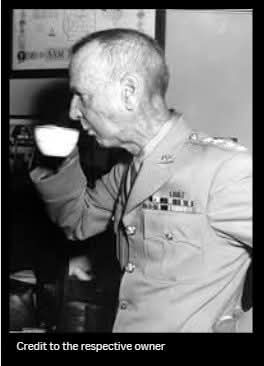August 23, 1945.
A gaunt man steps out of a Japanese prisoner-of-war camp in Manchuria. His hair is white, his body wasted to skin and bone, his eyes dulled by years of hunger and humiliation. This is General Jonathan Wainwright — just freed by the Russians after three and a half years in captivity.
His ordeal began in March 1942, when General Douglas MacArthur was ordered to leave the Philippines. Wainwright took command of a battle already falling apart. Corregidor was the last American stronghold, constantly bombed and shelled. By early May, food and ammunition were gone. On May 6, 1942, with no hope remaining, Wainwright surrendered — ending all organized resistance in the Philippines. He signed those surrender papers carrying the heavy burden of shame, doubt, and whispers of cowardice.
From that moment, he became cargo—moved from one prison camp to another, growing weaker and more skeletal with each transfer. In the dark of captivity, he told himself his country would see not just the surrender, but the fight that had come before it.
But when he returned, America called him something else entirely: a hero. He was promoted to full general and awarded the Medal of Honor. In September 1945, on the deck of the USS Missouri, Douglas MacArthur embraced him at the Japanese surrender.
Wainwright did not win his war. But he endured it — and sometimes, survival itself is victory enough.
